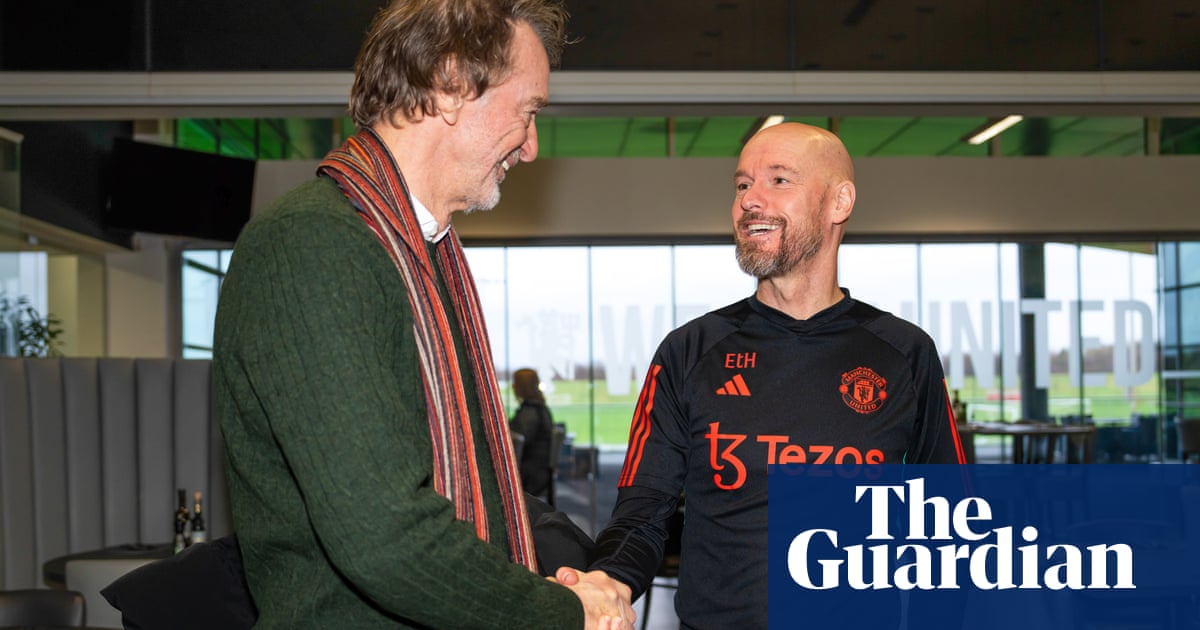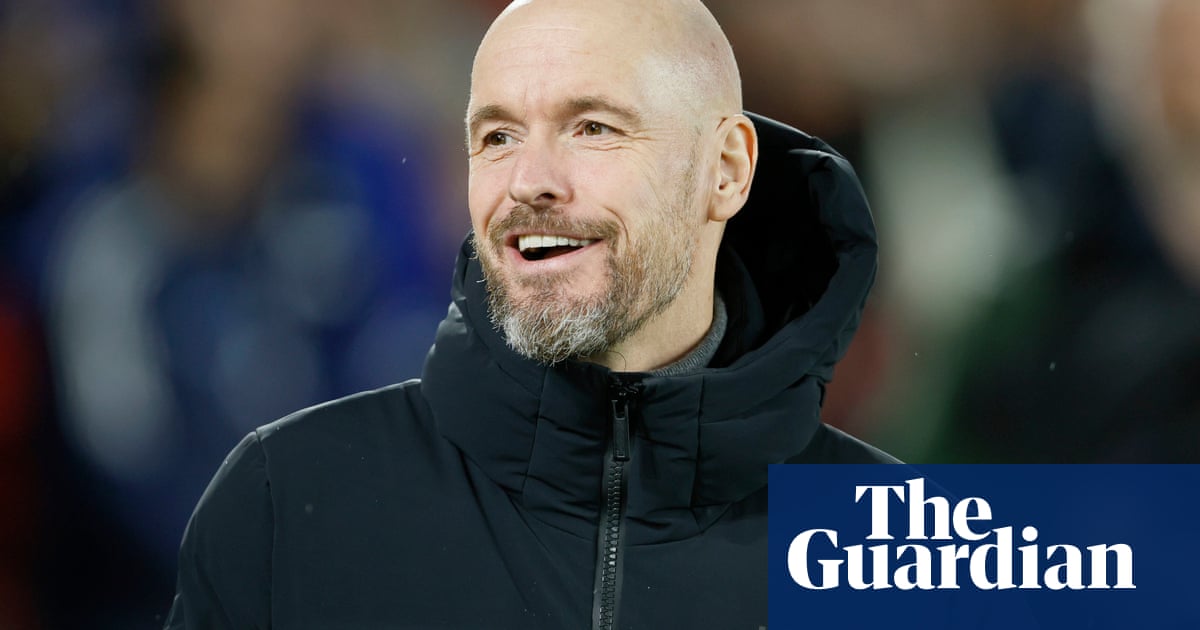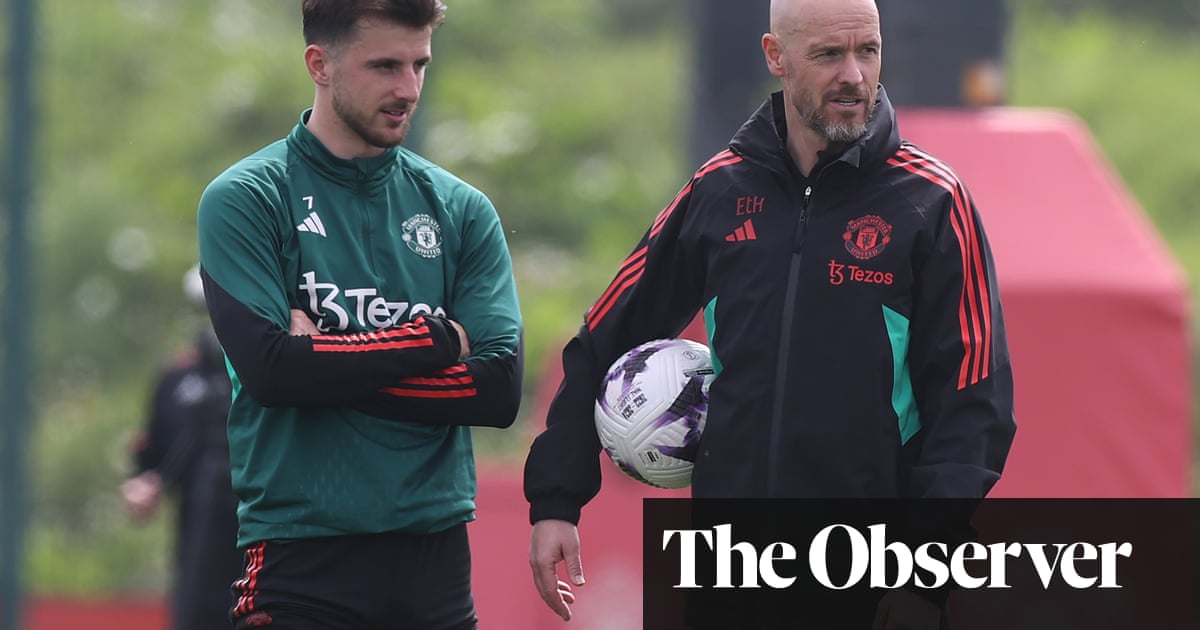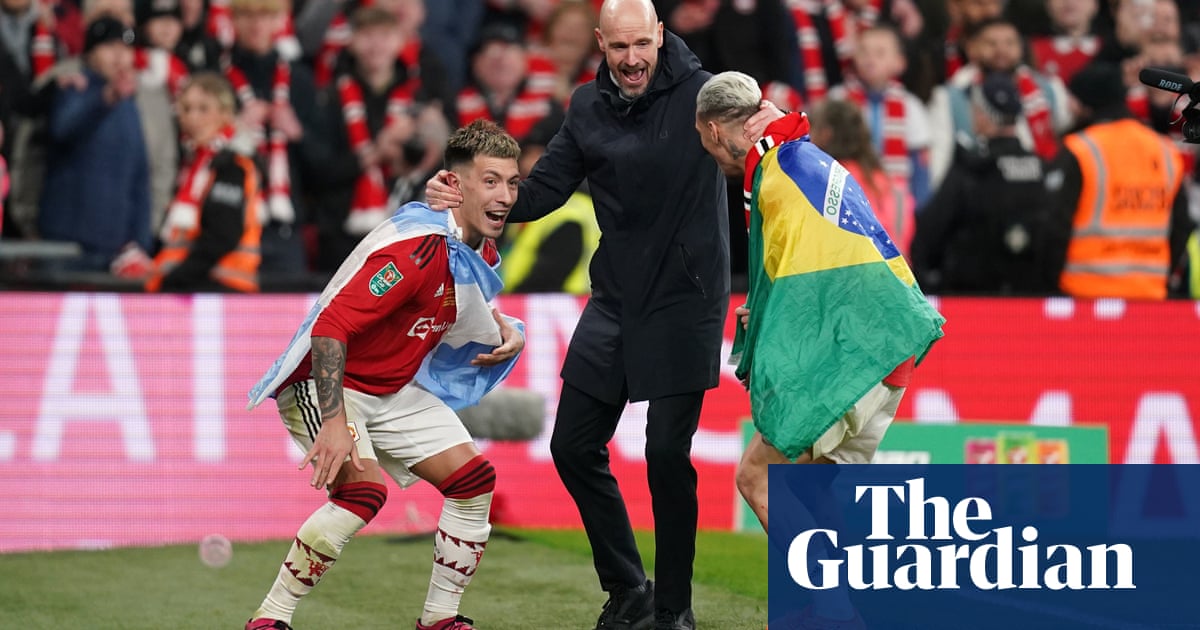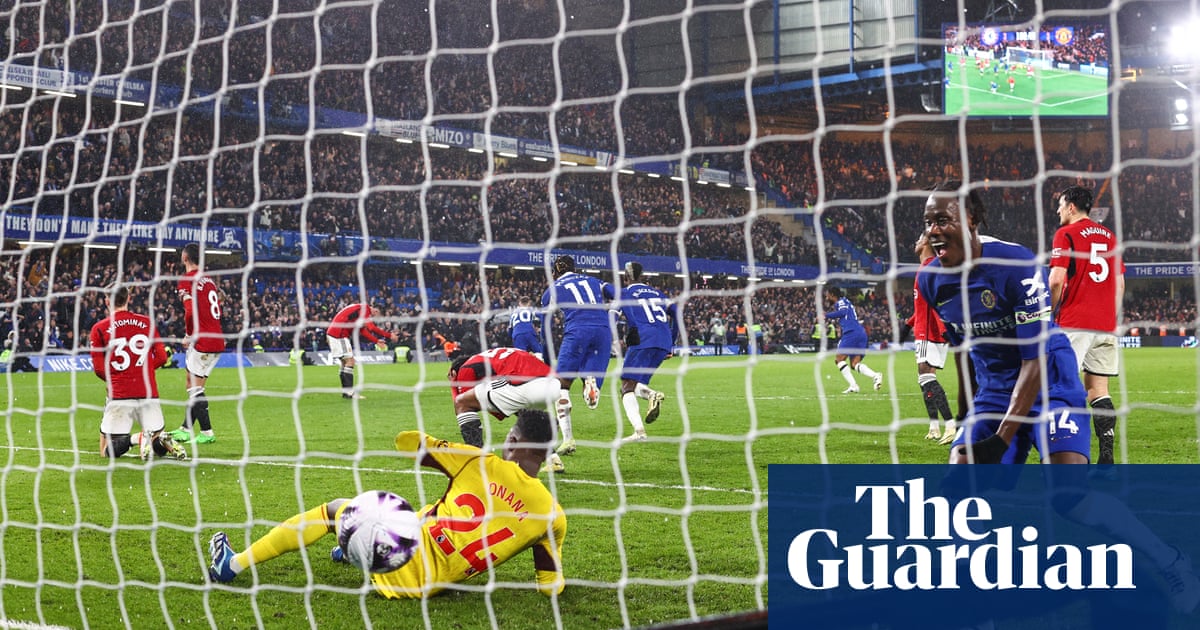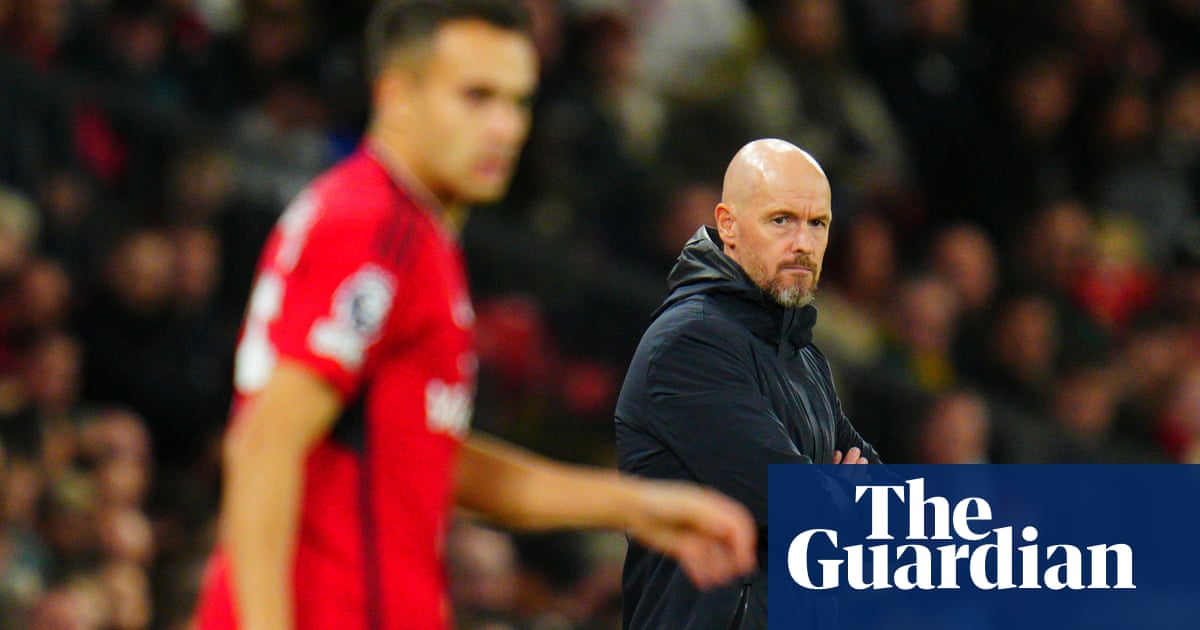
For Erik ten Hag the question has become burning: when will Manchester United have a clear and consistent plan, a distinctive style of play?
The 3-0 hammering by Manchester City in front of their own crowd on Sunday was the latest evidence in a bulging file that the Dutchman’s side are a mishmash. They can feature a dash of high pressing and slick passing mixed in with sluggish ball retention, passiveness, erratic defending, and everything seems predicated on the hope of a smash-and-grab counterattack.
Seventeen months and three transfer windows in, this is a surprise. To see what can be engineered in a similar (actually shorter) timeframe look to the Midlands or the south coast. In Birmingham, Unai Emery has taken Aston Villa to fifth place, seven points ahead of United, with a team showing a clear identity of intense, front-foot football.
At Brighton, Roberto De Zerbi has the Seagulls bamboozling opponents with the type of dizzying geometric angles that make them the closest imitation of Pep Guardiola’s City: the greatest compliment any manager can receive.
Emery has been in position for 12 months, De Zerbi 13. The budgets available to the Spaniard and Italian are far less than that given to Ten Hag, whose investment stands at £385.4m.
Here we come to the chief factor Ten Hag has agency over as he seeks to affect his on-field product: recruitment. The rule at United is that the manager and football department have a veto – therefore Ten Hag and John Murtough, the football director, have to agree on any signing.
Since Ten Hag took over in May 2022 the list of arrivals is Tyrell Malacia (for £15.7m), Lisandro Martínez (£56.7m), Casemiro (£52m), Antony (£85.6m), Christian Eriksen (free), Martin Dubravka, Wout Weghorst, Jack Butland, Marcel Sabitzer ( all loans), Mason Mount (£55m), André Onana (£44.1m), Rasmus Højlund (£72m), Jonny Evans (free), Altay Bayindir (£4.3m), Sofyan Amrabat and Sergio Reguilón (both loans).
United’s veto system means that none have been forced on Ten Hag so it is reasonable that he takes responsibility for how his team are configured and play.
This is where Gary Neville’s latest argument falls down. In the Sky Sports autopsy into the capitulation at Old Trafford, the former defender wanted the club’s “toxicity” to be solely responsible for United’s plight. “Are we going to keep blaming the kids in the class or are we going to blame the headteacher?” said Neville, meaning the owners.
The club’s back-of-house operation is certainly as much of a mess as the front. The Glazers have loaded close to £1bn of debt on United, which many fans detest them for. The Americans’ protracted “potential” sale of the club is about to reach a year anniversary and has featured false starts, procrastination and, now, Sir Jim Ratcliffe’s expected purchase of 25% for an inflated £1.3bn, in return for control of football policy.
This buy-in, if it occurs, seems the latest lurch into folly. The obvious question is: how will it manifest itself? Can the Glazers, led by Joel, their de facto chief, really step aside for a minority owner when football policy directly affects the lucrative commercial revenues they enjoy? There seems no clear answer, which sums up why the new structure could prove problematic.
Compare United with the high-grade operation run at City by the chairman, Khaldoon al-Mubarak, and his executives Ferran Soriano (chief executive) and Txiki Begiristain (sporting director) and you see clear lines of expert leadership at the Etihad Stadium – precisely what Guardiola spoke of after winning the 191st derby on Sunday.
“We are in the same direction, chairman, CEO, sport director, manager and the players,” he said. “Wrong or right, we go there. We make mistakes of course but when we lose or things are not going well we are not here to blame someone, we just see what we have to do to be better.
“We find a solution. The first season we didn’t win and I didn’t find my chairman complaining, he supported me unconditionally. When we lost the Champions League final versus Chelsea [May 2021] I was devastated and my chairman said: ‘Come on we are going to win it. What can we do next? Let’s go.’
“With that, everyone feels the club rely on me and the players know I rely on them. When that happens we are not overexcited when we win and when we lose we are not dramatic, we are not going to kill ourselves. It’s a football game, so what can we do to get better? We congratulate an opponent who beats us and try again. That’s why I think the club is so stable.”
United fans would love their manager to speak similarly but, instead, they watch aghast at a seemingly never-ending muddle. Ratcliffe’s arrival would not only likely make matters more convoluted but may threaten the positions of Murtough, Richard Arnold, the chief executive, and Ten Hag.
The word is that Ratcliffe views United as a cash-generating beast that falls down when spending it on the squad. You do not have to be Sherlock Holmes to detect this and the problem for Ten Hag is that after a near £400m splurge on players United still have no discernible style of play – which does not augur well for his future.
What, then, of Ten Hag’s comments after losing to City? “The players you have determines how you will play,” he told Viaplay. “We will never play the football we played at Ajax here.”
Here, at least, is consistency. At Ten Hag’s unveiling this correspondent asked how his United would look. He said: “Maybe you have seen Ajax? I like that. But it’s always players dictating the way of play.”
The question, then, is this: why, when signing 16 footballers, did Ten Hag not recruit those who could execute the style he prefers? It has left United seemingly still far from a clear plan.




